Feeling Depressed? We are here to Help you Deal with Depression
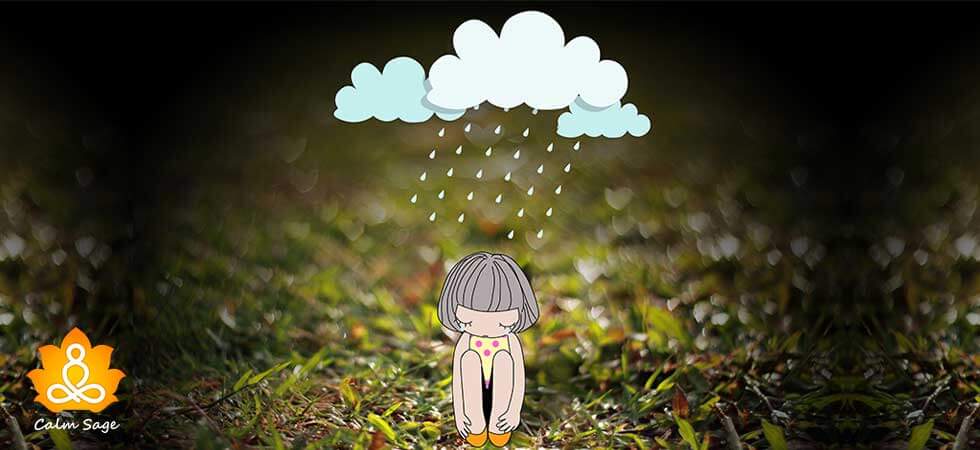
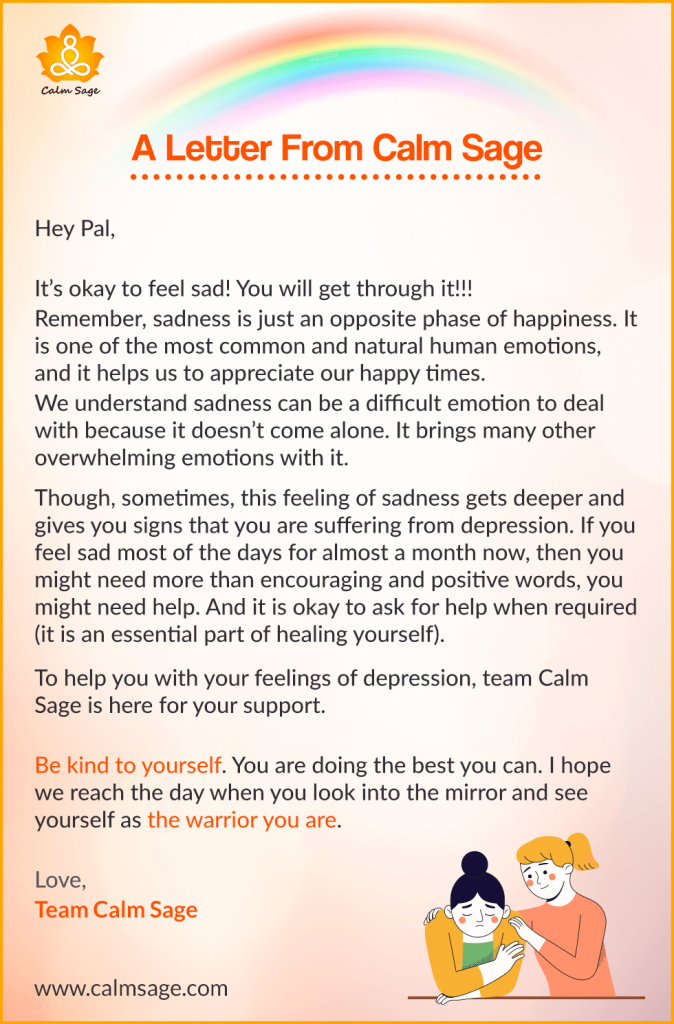
Working on Your Depression
Can you treat a wound without knowing where it is? How intense is it? Or without proper medicinal care? No! The same applies to feelings of depression. Before we start working on it we have to understand its signs and symptoms, causes, back yourself up with necessary tools, and then win over it.
Depression? What it Means to Feel Depressed
Depression is an excessive and deepened form of sadness, with loss of interest in almost all enjoyable activities, and low motivation.
Experiencing the feelings of despair under situations and events like- loss (of a job or a loved one), stress, a major life change, disappointment, is normal (in fact it is a sign that you are emotionally active). However, when these feelings persist for over months and keep returning from time to time, interfering in the day-to-day functioning of your life, then when it becomes important to address it and work on it because your feelings of sadness have now developed into depression.
Be Cautious of The Signs( Sign of Depression Checklist):
The feeling of sadness and loss of interest in activities are sure signs of depression. But, along with these signs, there are some other physical and psychological signs that are likely to follow. Below, we are providing you a checklist of signs. You can make use of it by simply putting a check in front of the signs that you have been witnessing from two weeks
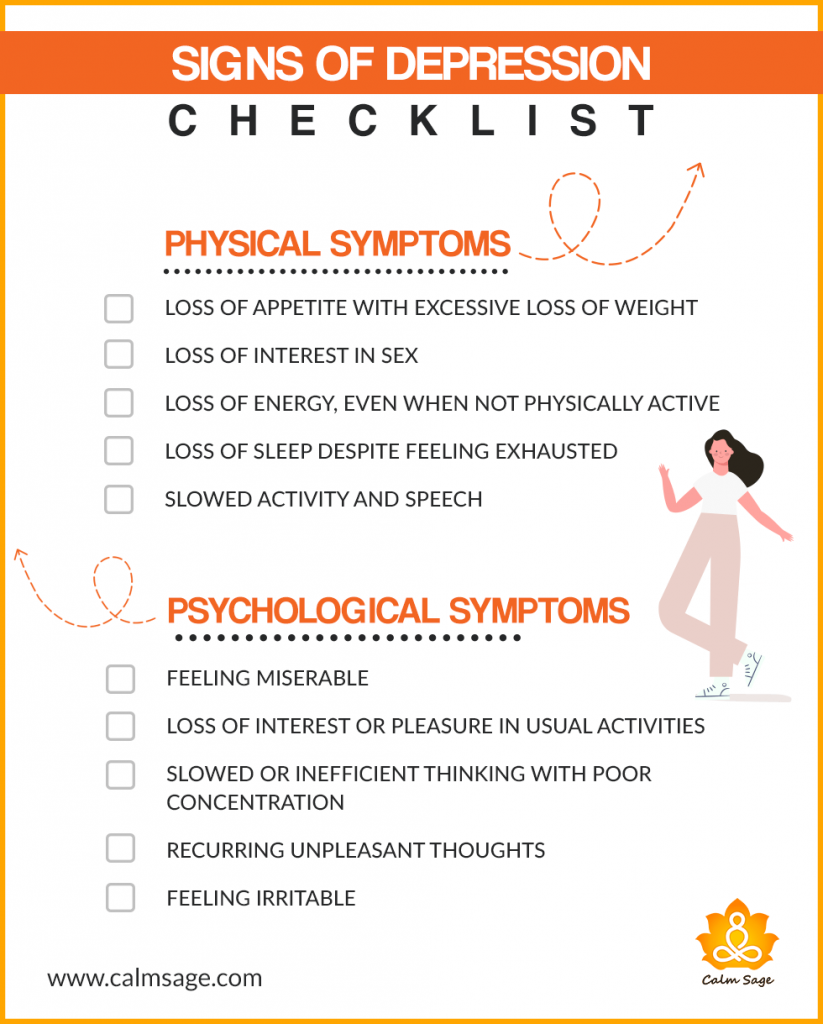
If you checked more than five signs then the chances of you suffering from depression are more.
Test Your Level of DEPRESSION
Apart from these signs, there are standardized questionnaires available to test the level of depression. You can take a test here and find your scores for the same.
The reason why taking the test is recommended lies in the fact that depression is common. One in three people does experience a major depressive episode in their lives. While most cases of depression are mild, one person in ten has the likelihood to have a moderate or severe episode. Now, depending on the level of depression experienced by you, the treatment approach will follow.
Tracking The Causes of Depression:
To date, the exact cause of depression remains unknown. However, there are few identifiable causes that are found to be related to depression. These identifiable causes of depression are:
1. Genetics (depression is found to run in families)
2. Stressful Life Events (They trigger and worsen the depression)
3. Personality Characteristics (Negative thinking pattern linked to depression)
4. Medical Conditions (physical illness and medications leads to depression)
Dealing With Depression:
Depending on the level of depression that you are experiencing right now there are various treatment approaches that can help you in dealing with depression. Generally, these techniques work in conjunction with each other to provide you best relief from the symptoms and avoid any chances of relapse.
1. Therapies:
Psychological treatments also known as talking therapies can help in dealing with depression. In fact, talking is by far known as the most effective way of diagnosing and treating depression.
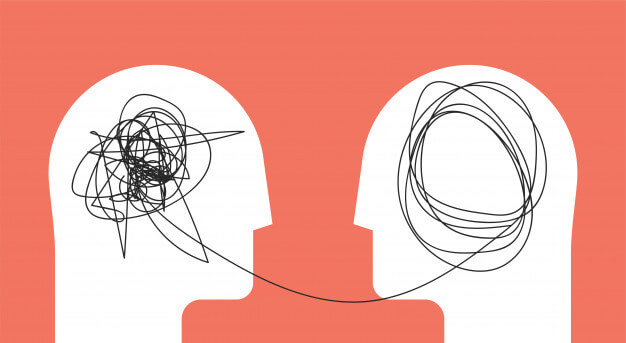
There are various therapies that are found to work effectively in the treatment of depression, this includes:
- Cognitive Behaviour Therapy (CBT): It focuses on the identification of our thoughts (cognition) and acts (behavior). It is found to be very effective while working on depression irrespective of age and gender.
- Interpersonal Therapy (IPT): The focus of this therapy is problems in personal relationships and helps in developing skills that are required to deal with these.
- Behaviour Therapy: Unlike CBT, the primary focus of behavior therapy is- working on the action component rather than attitudes and behavior both combined.
- Mindfulness-Based Cognitive Therapy (MBCT): A meditation-based therapy that initially works on our physical sensations and further moves to our feelings and thoughts. Although generally delivered in a group setting, it can be implemented in one-to-one therapy sessions as well.
Each of these therapies works in an equally effective way. You and your mental health professional can discuss which will work best for you and go forward with the same.
2. Medications:
Depending on the analysis of your depression level and treatment approach sometimes medication also becomes a part of it. There are many myths around antidepressants like- they lead to drowsiness, they lead to addictions, and they can be taken with other substances (such as alcohol, drugs, etc).

Let us debunk these myths:
- Medication might lead to little drowsiness at the beginning as your body is getting adjusted to it. Give it some time. However, if it persists contact your health professional. He might suggest a different medication.
- No, antidepressants are not addictive if taken in prescribed amounts.
- Just like other forms of medication, antidepressants too can’t be consumed with any kind of substance. Not only will this slow down the effect of the medication but it might also result in adverse consequences.
- Plus, be religious with your medicines for an effective output.
Note: Therapy or medications generally work in conjunction with each other so that the desired results can be obtained and your mental wellness remains intact.
3. Education:
Think of education as the perfect backpack that you need in the journey of treating any mental health condition. Every time you have self-doubts or anyone else has a doubt over depression treatment, pick a piece of information from this backpack and enlighten yourself or others.
The most essential information about depression is- that it is a common mental health issue and effective treatment of the same is available.

Let us see what more does this backpack holds for us:
- Depression is an illness (just like any physical health condition)
- It is not a sign of weakness
- Treatment is effective and available in different forms, thus offering something for everyone
- Recovery is the rule, not the exception
- There are chances of relapse and recurrence, therefore building proper coping mechanisms is equally important
- Seeking early treatment is found to help in reducing the chances of signs to develop further
- The family should also be informed about the signs
Coping with Depression:
While therapies and medication will be provided by mental health professionals you too can work yourself and let the magic happen. There are few signs and symptoms of depression that if dealt with properly can help in reducing the level of depression experienced by us. Therefore, here we are providing you with some effective coping mechanisms for each of these important signs. No matter whether you are depressed because of business loss, failed relationship, or poor work performance, working on these signs (along with other treatment approaches) will help you win over the signs. Along with this, we have shared an activity specific for a given coping mechanism. We would want you to work on it. Start small, but start working on yourself.
So let us check what these coping mechanisms are.
1. Inefficient Thinking
Inefficient thinking or worrying can further intensify the symptoms and level of feeling of sadness. Therefore, it is important to work on them. Here is a step-by-step guide for you to follow (feel free to take a screenshot and keep it handy)
STEP 1. Say exactly what the problem (or goal) is.
STEP 2. List five or six possible solutions to the problem. Write down any ideas
that occur to you, not merely the good ideas.
STEP 3. Evaluate the good and bad points of each idea in turn.
STEP 4. Choose the solution that best fits your needs.
STEP 5. Plan exactly the steps you will take to put the solution into action.
STEP 6. Review your efforts after attempting to carry out the plan. Praise all efforts. If unsuccessful, start again.
2. Disturbed Sleep
Sleep works like a renew and refresh button so it becomes important to work on it. Three ways to work on your sleep are:
- Set a sleep cycle and stick by it.
- Keep a check on your intake of tea, coffee, or other caffeinated products. It involves two major aspects- reduces the amount of consumption and your daily dose, plus, avoid consuming it post 4:00 p.m.
- Try relaxation activities before going to sleep like- meditation, deep breathing, to name a few.
Activity: From today, sleep by 9-10 p.m. and make it a schedule for a week, you feel a lot better in a week’s time. If there is a discrepancy of 30-45 minutes, it is okay you are getting there. Don’t rush but don’t be laid back either.
3. Loss of Appetite
Food is the fuel that the body, brain, and body need to fight against depression and give you the much-needed energy. Three important points to keep in mind here are:
- Eat a small proportion of food throughout the day
- Drink plenty of healthy fluids (be it water or juice)
- It is okay to eat slowly or at your own pace, try to savor what you eat
Activity: Make a food chart for yourself or ask a close friend to do it for you. Stick by it for a week. You can ask your friend to keep checking on you. Make sure that the chart is realistic and not idealistic.
Template:
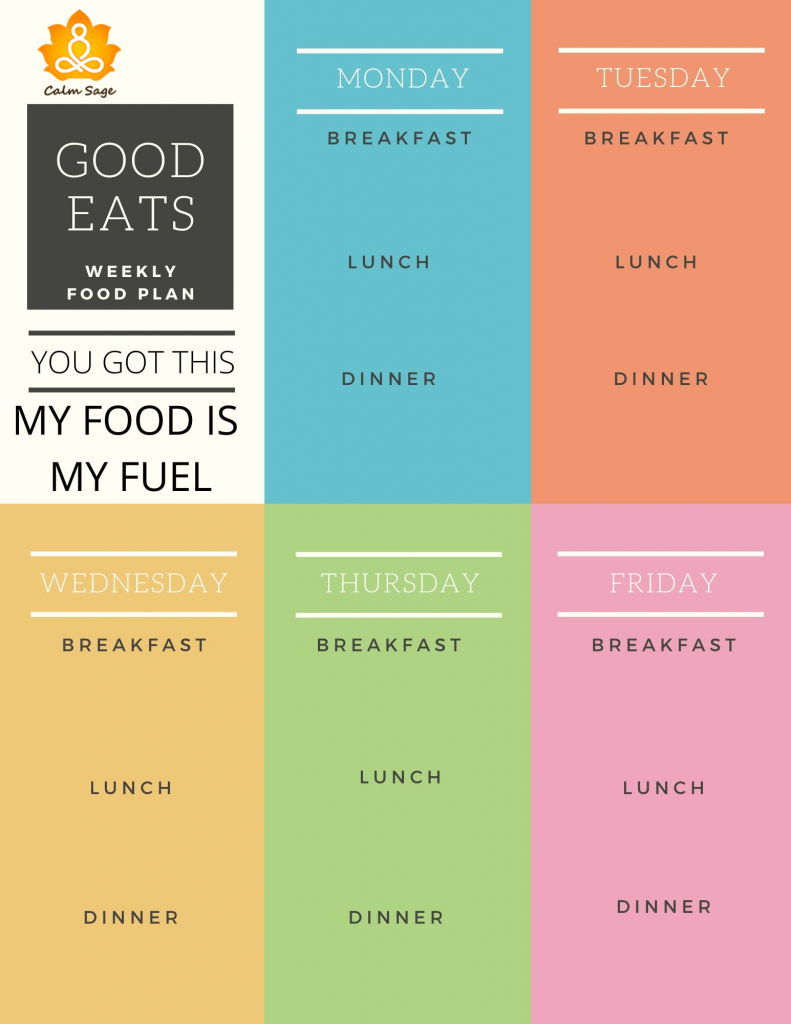
4. Decreased Interest in Sex
With lower levels of libido, the intimate relationship between partners can fade off, creating a vicious cycle of sadness. But, you can work on it together.
- Try to work on little tasks together that you two enjoy as a couple. It will help you feel good and boost your relationship
- Openly communicate with your partner about how you are feelings
- Assure them that your love for them is still there and your loss of interest is a symptom rather than a sign of rejection of their feelings
Activity: Increase your bond and nurture your love by planning a to-do list that involves the two of you. Think of it as mundane tasks to reconnect and rejoice in what you have.
Template:
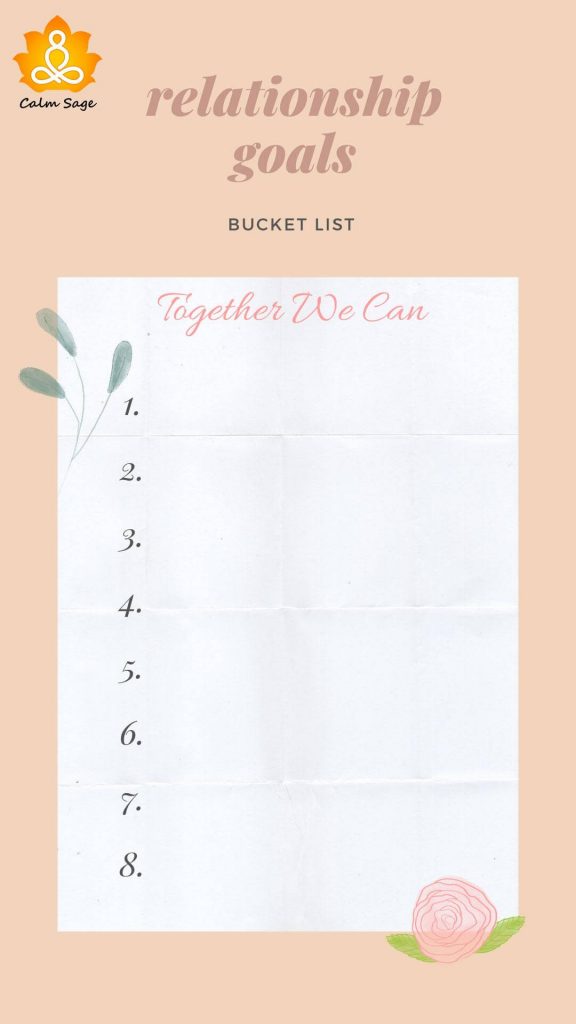
5. Unpleasant Thoughts
A hallmark of depression is negative thinking. It feels like a never-ending loop, which ends up reducing your focus on the positive characteristics that you have. So the strategies mentioned below will help you break this loop, remove the clouds of self-doubts, and welcome pleasant thoughts in your life.
- Remind yourself of all the goods that you have. Make a list of three best features of yourself, you may take help from friends and family as well. Keep this list handy. Every time you feel you can’t do it or the feelings are getting overboard, pull it out, read it, breathe, and put a smile on your face. You got it!
- Start keeping a record of good and pleasant things happening around you. Be it something very trivial like a butterfly on your window, the rainbow in the sky, or something major like getting a sound sleep. You can share them with your closed ones or mental health professional as well.
- Give a valid explanation to your thoughts, At first you might find blaming yourself for the thoughts and their conclusions, but as you work with your thoughts you will find possible and realistic explanations for them. It is advised to write your thoughts and explanations down on a paper for better clarification.
- Recall and make a note of positive life events. If you face difficulty tracking them down, take help from a friend. Plus, you can also make a new list of pleasant activities to enjoy with them.
- Keep yourself engaged in one or the other form of activity this will act as a shield towards unwanted and unpleasant thoughts. P.S. Enjoy the activities you are engaged in, don’t think of it as an escape.
Template:
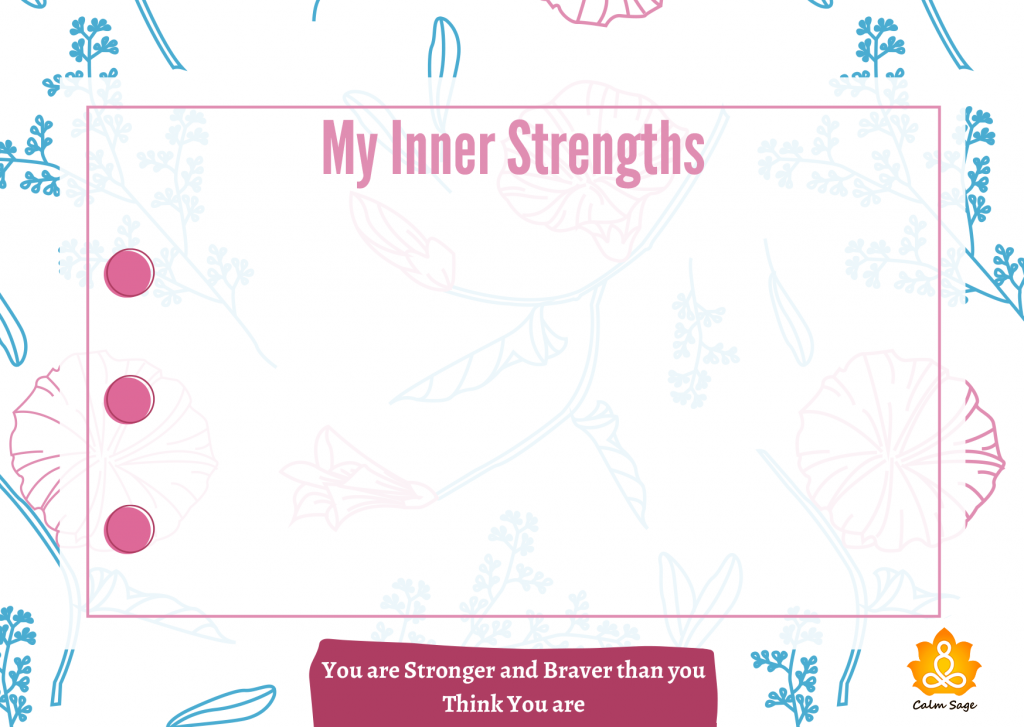
6. Other Strategies:
The coping mechanisms mentioned above are directed towards particular signs and symptoms of depression. There are some strategies that are found to be useful in healing from depression. This includes:
Set goals for each day. Make a list of activities for each day of the week and engage in them. Make sure they are doable activities. Try to stick by them as closely as possible. Don’t pressurize yourself.
Template:
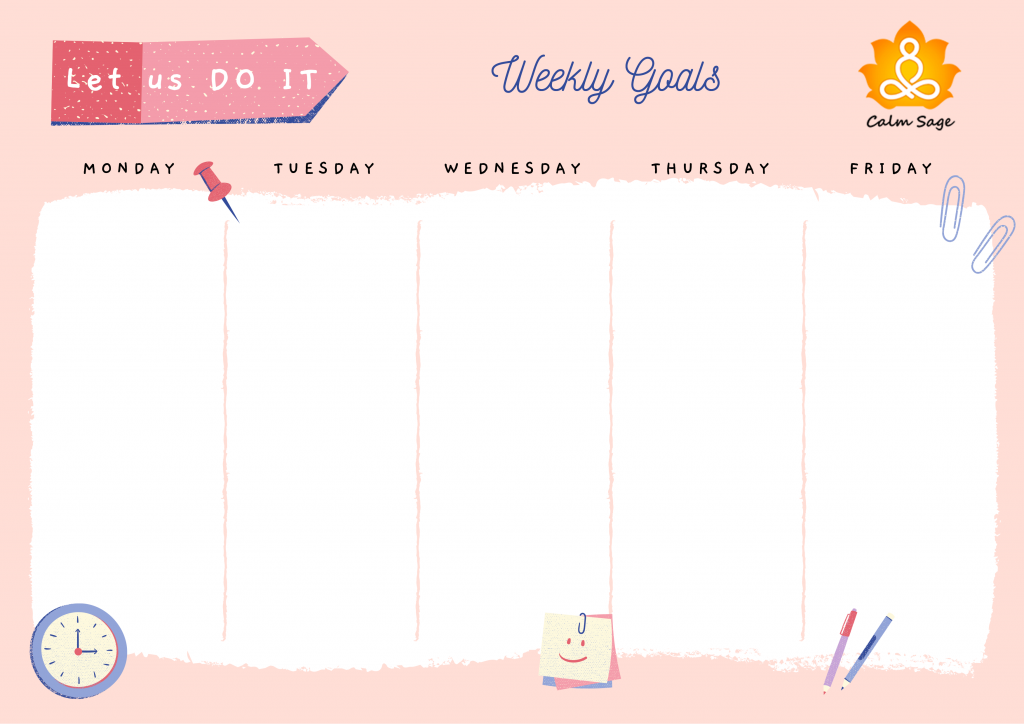
Reward yourself. We understand you are putting a lot of effort in working on yourself and your symptoms. To make it light-hearted and enjoyable for yourself we recommend you set a reward system. Rewards are found to release the feel good hormones in our body and let us be honest, don’t we need them.
Template:
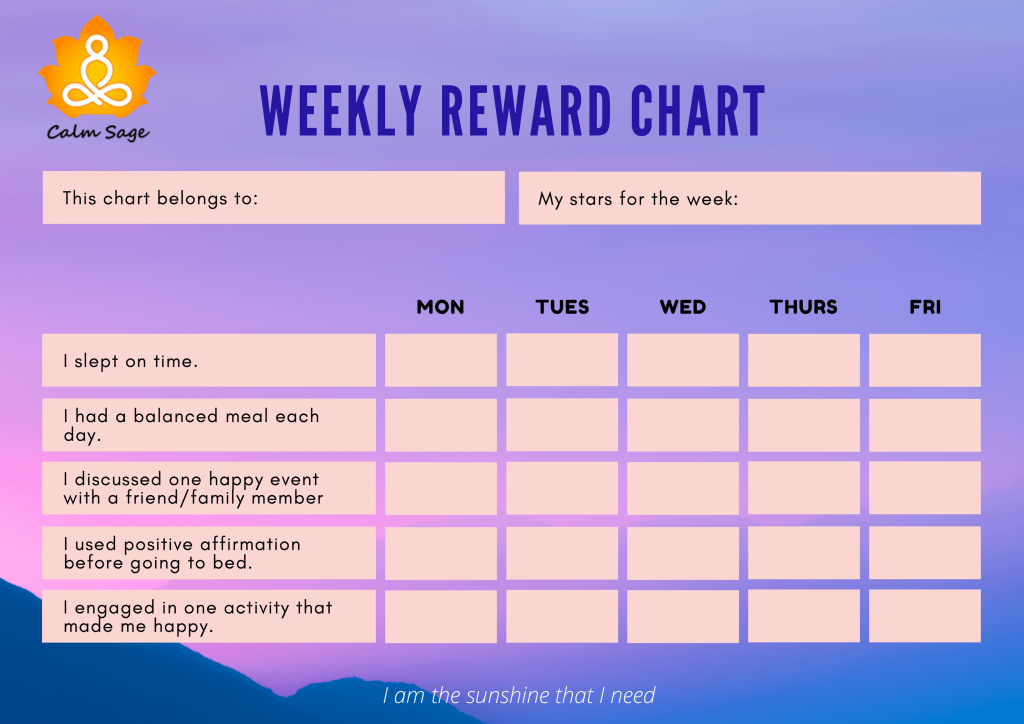
Be grateful. The thoughts and feelings associated with depression tends to take us away from reality. So, it is important to feel grounded at these times. The best way to achieve it is to remind yourself of things that you are grateful for in your life.
Template:
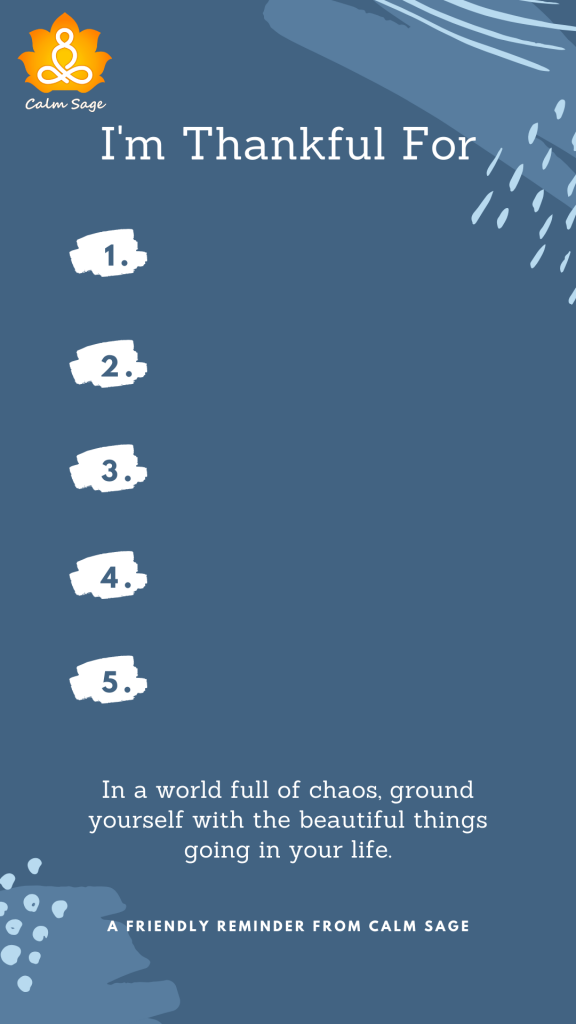
Take home message: With proper assistance, the right treatment, a well-founded understanding of depression, you can overcome depression.
“There is hope, even when your brain tells you there isn’t.”
John Green
Recommended Articles:
1. Best Foods That Help To Reduce Anxiety
2. Step Into The Light- Acceptance Is The Key
3. Change Your Mindset And Reduce Anxiety








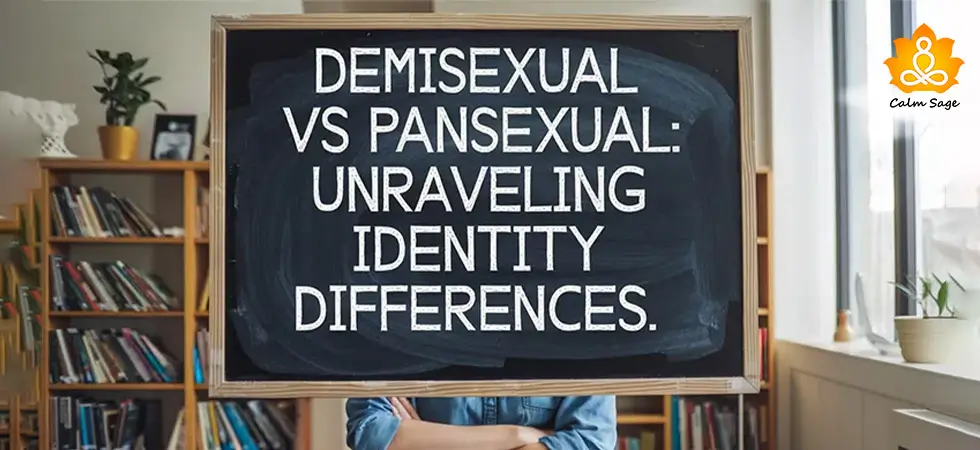












Quite helpful. Will definitely share this within my contacts :) Thanks Calm Sage for sharing.